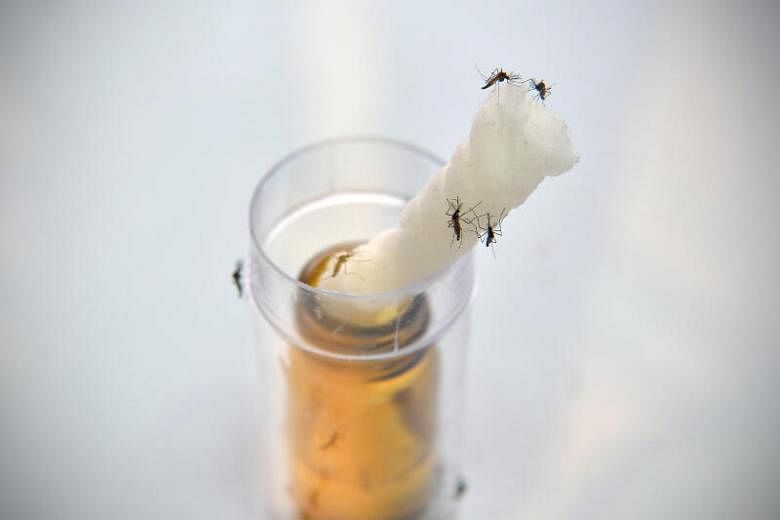SINGAPORE - While the Republic continues to ramp up its fight against the coronavirus outbreak, it cannot drop its guard against its old foe, dengue, said Minister for the Environment and Water Resources Masagos Zulkifli on Monday (March 23) at a panel discussion organised by The Straits Times on combating the spread of Covid-19 here.
As of Sunday, more than 4,000 people here had been infected with dengue fever, double the number of cases reported for the same period last year.
Worse still, said Mr Masagos, the strain of dengue threatening Singapore today, DENV-3, is one which many here do not have immunity against.
There are four dengue serotypes, with DENV-1 and DENV-2 being behind the outbreaks here. DENV-2 has been the dominant strain since 2016.
Mr Masagos warned: "The last time we had the DENV-3 outbreak was 30 years ago, which means that there's a generation of us who do not have the antibodies or the immunity against (it)... it's certainly something to cause alarm."
He added: "We hope that as much as we are worried about Covid-19, we must not lose sight of ensuring that... we do not become lax.
"Yes, we start washing our hands - it's fantastic, we don't leave tissues on the table, but please continue to do the things that we have always been doing year after year to bring down and to keep suppressing the breeding of mosquitoes because that's the only and best defence against dengue transmission."
In response to the grim dengue outlook here, the National Environment Agency (NEA) had brought forward the launch of its annual dengue prevention campaign, which typically begins in April or May, to Sunday.
Also on Monday's panel were Professor Wang Linfa, director of the emerging infectious diseases programme at Duke-NUS Medical School, Mr Edward D'Silva, chairman of the Public Hygiene Council, and Mr Tai Ji Choong, director of NEA's Department of Public Cleanliness.
Prof Wang said that those who had previously been exposed to the DENV-1 and DENV-2 strains of dengue are at higher risk of getting a more severe infection from the DENV-3 strain due to a phenomenon known as antibody-dependent enhancement.
This occurs when antibodies that are already present in a person from a previous dengue infection bind to a new infectious dengue particle, but instead of neutralising the virus, help it infect the patient more efficiently.
And while there is as yet no scientific evidence linking dengue and Covid-19, it is possible that a dengue infection might weaken a person's immune system and make one more susceptible to Covid-19, said Prof Wang.
"You just want to keep healthy and avoid any infection, whether it's dengue or Covid-19... These are two different viruses and two different approaches. But the principle is the same, it's every citizen's responsibility," he said.
Mr Masagos said: "The point is we don't want to have two crises to fight."
He added: "In Singapore, dengue is here to stay. Covid-19 is here but will hopefully go away. We must therefore not lose our sight on something which is also as dangerous, will also cause losses."












